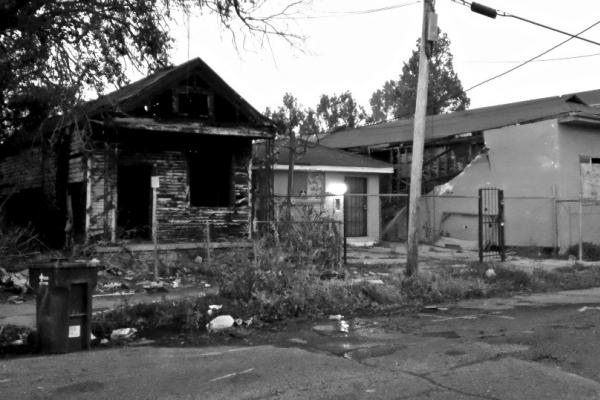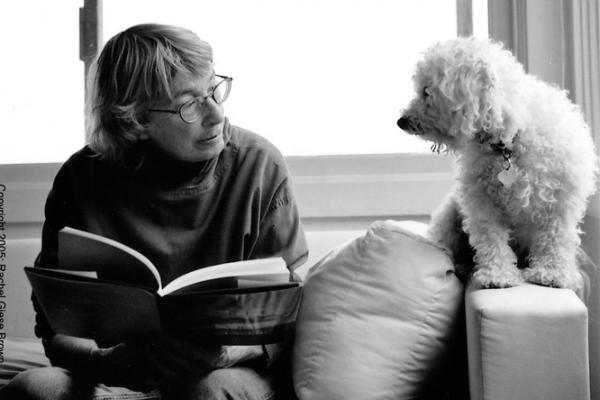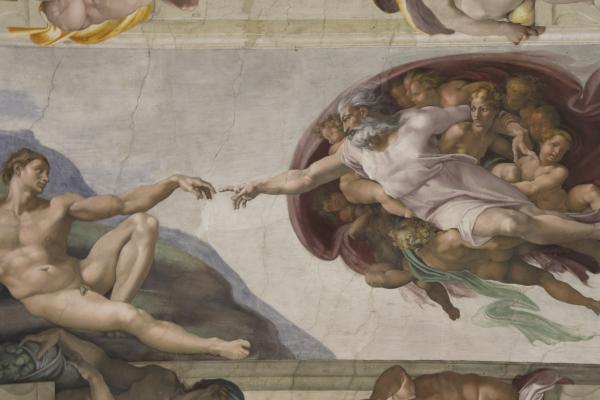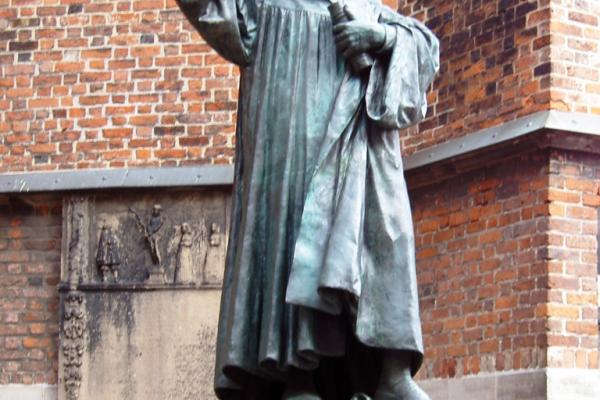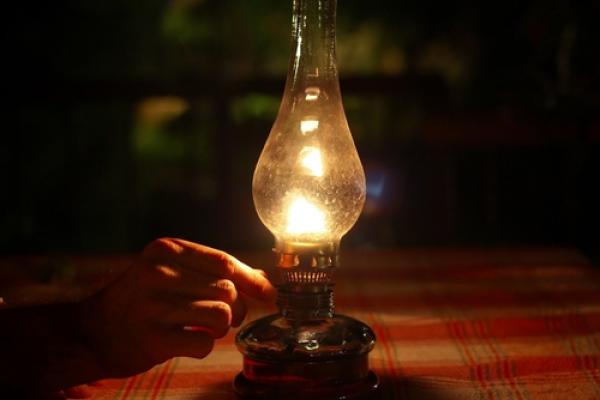Much has been said by politicians and the press in this campaign. In three presidential debates alone, we've heard the two contenders for our nation's highest office speak of tax cuts, deficits, jobs, and the middle class literally hundreds of times.
But much has also been left unsaid. In those same presidential debates, poverty was hardly featured and the word "inequality"didn't appear at all.
How can it be that the Holy Bible refers to helping the poor and vulnerable more than 2,000 times, yet two professing Christians running for president of the United States disregard this unholy scourge?
As we did not hear in the debates, nearly 50 million Americans are currently living in poverty – more than at any other time in our nation's history – and between a third and half of all Americans are within a few lost paychecks of the poverty line. When a quarter of all American jobs pay less than poverty line wages for a family of four, systemic poverty and inequality become more than abstract economics: they are moral and Constitutional concerns.
So they should be treated by the men and women who aspire to lead our country.
What’s the first thing you think of when you think poetry readings by a Poet Laureate and a Pullitzer Prize winner? Well, whatever it is, I’m sure you weren’t thinking dogs.
Nonetheless, pet dogs were brought up more than anything else during poetry readings by Billy Collins and Mary Oliver at the Strathmore in Bethesda, Md. on Sunday. They managed to bring up their dogs in a beautifully poetic way, of course.
But perhaps the most important take away from the evening came from Oliver during a question and answer time after the readings. She said something like this: “Pay attention. Be astonished. And tell about it. We’re soaked in distractions. The world didn’t have to be beautiful. We can and should think about that beauty and be grateful.”
Those are words I have tried to live by for the last year.
Both poets demonstrated that attention in their work — even in poems about dogs.
VATICAN CITY — Exactly 500 years ago, on Oct. 31, 1512, Pope Julius II led an evening prayer service to inaugurate the Sistine Chapel and Michelangelo's newly-finished vault frescoes.
But as Pope Benedict XVI on Wednesday celebrated the 500th anniversary of the Renaissance masterpiece, the Vatican said the growing number of tourists who visit the historic site every year might eventually lead to limiting access to the chapel to help preserve the frescoes from human-born problems and pollutants.
“We could limit access, introducing a maximum number of entries,” wrote Antonio Paolucci, the director of the Vatican Museums, in L'Osservatore Romano, the Vatican's semi-official newspaper. “We will do this, if the pressure from tourism were to increase beyond a reasonable level and if we were to fail in resolving the problem efficiently.”
Paolucci stressed, however, that in his opinion such measures will not be necessary “in the short to medium term.”
New Andrew Bird, a little Reformation polka, a concert film from Mumford and Sons, an app that hides all those pesky political Facebook updates, an awesome Halloween costume, a Hobbit-themed airline safety video, The Buddhist Rapper, and, of course, the top ten ways to smash a pumpking.
I know, that's a lot to take in.
LOS ANGELES — Unshaven and wearing a black hoodie and cap, Omar Elba looked out from the lectern, surrounded by a gold cross and organ pipes. "Moses, you are my nizzle fo' shizzle," said the Egyptian-born Muslim comedian, doing his best to channel Snoop Dogg.
It's a joke he's done before, but never in a church.
The unique setting of their performance inside Westwood Hills Congregational Church wasn't lost on any of the performers at the Sultans of Satire comedy show. Yet the sacred stage didn't keep them from swearing or talking about sex, although it inspired more jokes about growing up Jewish, Muslim, and Christian than one might typically hear during stand-up.
"I don't know whether to tell jokes or tell you my confessions," Elba said, opening up the show.
Today is the day we remember the Protestant Reformation. On Oct. 31, 1517 Martin Luther, my denomination’s namesake, nailed his 95 Theses on the church door in Wittenburg. It was the beginning of a new movement that brought many changes to the Christian church. Perhaps the change I am most thankful for (other than a new awareness of justification by faith alone, simul iustus et peccator, and imputed righteousness of course) is that the Reformation paved the way for the Bible to be placed in the hands of the people. Before Luther’s German translation was completed in 1534, which happily coincided with advancements in the printing press, it was virtually impossible for any non-clergy Christians to get ahold of, much less read, the book we take for granted.
Individual faith and the ability to study this book for ourselves is a benefit we don’t even stop to consider. I grew up with more Bibles in my home than we could ever use and have countless different versions now in my office. And yes, there are still some places where access to information and printed text is hard to come by, but at least here, God’s Word is always at our fingertips, if we want it to be.
I’ve had a number of interesting discussions with various people lately about the notions of hell, salvation and who goes where. It’s a rhetorical exercise for the most part, since no one really knows. But there are plenty of real-life implications, particularly in the sphere of religion. For some, the understanding of what happens to us after we die is the prime mover in their day-to-day faith.
I know that the times when I resonate with more hard-line evangelical theology are few and far between, but in this case, I tend to resonate more closely with them than with my brothers and sisters of the Calvinist (also called Reformed Church) movement. For some not familiar with the differences, common Evangelical belief would suggest that God’s saving grace is available to all who seek it, and that the only thing standing between us and eternal salvation is us and our unwillingness to accept God’s perfect gift. In the Reformed Church, however (represented most prominently today by pastors like Mark Driscoll and John Piper), salvation is reserved for an elect few. The rest of creation will suffer the eternal wrath of God, period.
“Long Time Gone” is David Crosby’s anthem of hope in jeopardy. He wrote it the night Robert F. Kennedy was assassinated.
“I believed in him because he said he wanted to make some positive changes in America, and he hadn’t been bought and sold like Johnson and Nixon – cats who made their deals years ago with the special interests in this country in order to gain power,” Crosby wrote in the liner notes of the 1991 CSN boxed set. “I thought Bobby, like his brother, was a leader who had not made those deals. I was already angry about Jack Kennedy getting killed and it boiled over into this song when they got his brother, too.”
In the ‘60s, the Kennedys represented hope for change: racial equality, economic justice, and abolishing the death penalty, for example. Five decades later, you still don’t see many long-haired politicians, but that hardly seems the matter of dire culture import that it apparently was in 1968. And now we have a black president. Still, on the whole, Crosby’s words seem prescient, rather than anachronistic.
Almost 50 years later, we’re still giving legal benefits to some couples but denying them to others, not to mention that we fill our prisons with brown-skinned people, too many women are still ashamed to report rape or domestic violence, greedy people hoard resources while others go hungry, and the president who campaigned on hope hasn’t been able to bring any real change in our unjust economy.
